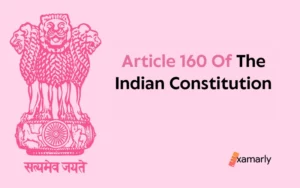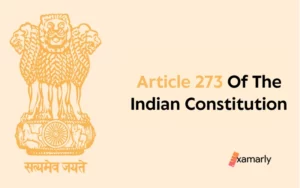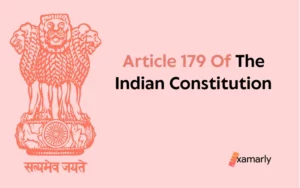An Overview
Article 122 of the Indian Constitution is similar to Article 121 of the Indian Constitution as they both reflect on the segregation of The Legislative from The Judiciary.
We saw in Article 121, that the Houses of Parliament have to power and authority to discuss the conduct of the judges of either the Supreme Court or the High Court.
In the same way Article 122 talks about the restrictions that have been put on the courts regarding the member of the Houses.
Let us delve deep into Article 122 of the Indian Constitution and conquer all the clauses.
Article 122 of the Indian Constitution – In Detail
We will understand Article 122 of the Indian Constitution in detail by analyzing each and every clause present in it.
Clause 1 – As it is & Explained
122. Courts not to inquire into proceedings of Parliament
(1) The validity of any proceedings in Parliament shall not be called in question on the ground of any alleged irregularity of procedure
As by the title, we understand that all the clauses present in this Article are related to the restrictions that have been put on the courts from inquiring about the proceedings of the Parliament.
The first clause of the Indian Constitution says that whatever proceedings are going on in the Parliament are not liable to be questioned on the basis of any misleading in the procedure. Such misleading that have been accused but not proved.
Clause 2 – As it is & Explained
(2) No officer or member of Parliament in whom powers are vested by or under this Constitution for regulating procedure or the conduct of business, or for maintaining order, in Parliament shall be subject to the jurisdiction of any court in respect of the exercise by him of those powers CHAPTER III LEGISLATIVE POWERS OF THE PRESIDENT
Just like the way the Parliament cannot question on the conduct of the Judge of the either of the court, the courts cannot question any power that has been exercised by the member of the Parliament.
The second clause of Article 122 of the Indian Constitution specifically says that if an officer or a member of the Parliament has exercised his powers which fall under the Constitution of India to regulate a process, or to maintain order. Then, no courts can question him with respect to his power exercised.
Summing Up
Article 122 of the Indian Constitution clearly makes the segregation between the Legislature and the Judiciary more evident than Article 121 of the Indian Constitution.
I believe that all these segregations are a mandate to help both the pillars of the nation work smoothly. The interference could have downsides which could affect the quality and authenticity of the decisions that are been taken on fiscal matters.
FAQs
Can any court question the integrity of any member of the Parliament?
No court can question the integrity and the conduct with respect to discharging the duties of any member of the Parliament.






